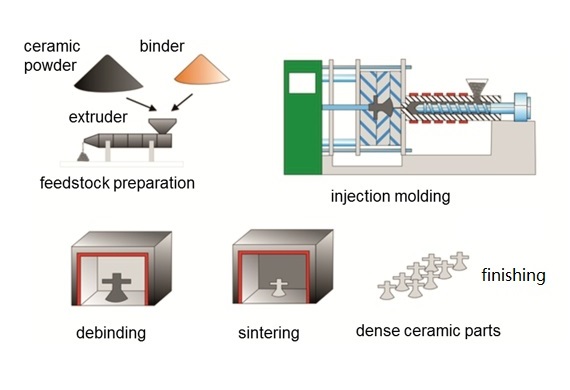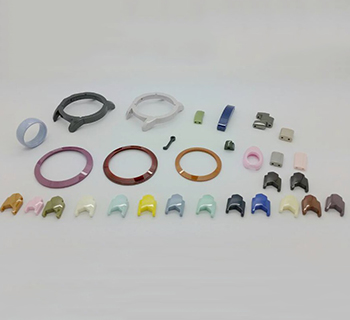Ceramic Injection Molding (CIM) is ideal for near net-shape, high-volume production of complex, tight-tolerance ceramic components. Ceramic Injection Molding offers significant advantages over conventional forming methods:
Advantages:
• Cost-effective technique for complex designs
• Ability to produce net or near-net shape parts
• Very tight tolerance control
• Low-cost, high-volume manufacturing runs
Complex ceramic parts can be manufactured easily and reliably
high-quality ceramic injection molding opening up new possibilities for making complex components with economic and technical benefits:
• High degree of automation
• Wide range of shapes
• Near-net-shape manufacturing
• Good mechanical properties
Ceramic Injection Molding Process

Material Preparation – Our application engineer help you choose from variety of advanced technical ceramics.
Molding – State-of-the-art injection molding machines heat feedstock to a flowable state and pressure inject it into a steel mold. The part then is cooled until solid and ejected from the mold
Debinding – Some materials may require either thermal or chemical bath debinding prior to the sintering process.
Sintering – In kilns capable of exceeding 1700° C, ceramics are sintered to full density, removing any remaining binders or organics.
Finishing Operations – If needed, operations such as ceramic machining, grinding, Lapping and Polishing Services are available to meet customer specifications.
Materail:
Alumina(Al2O3)96%-99%
Zirconia (ZrO2)
Applications:
Automotive industry
Consumer goods
Machine construction
Communication / electronics
Medical technology

Ceramic Injection Molding (CIM) Parts
